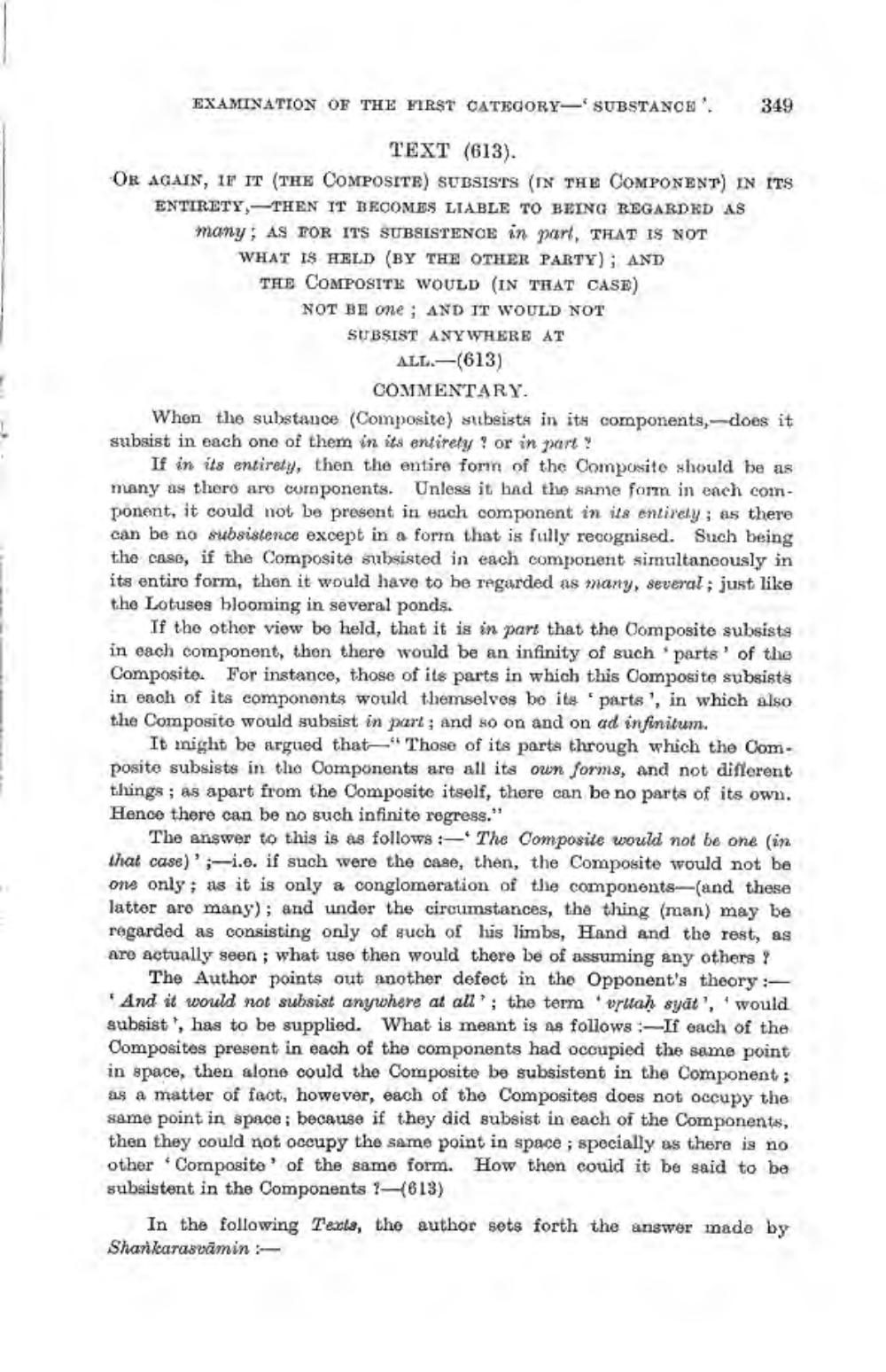________________
EXAMINATION OF THE FIRST CATEGORYSUBSTANCE
349
TEXT (613). OR AGAIN, IF IT (THE COMPOSITE) SUBSISTS (IN THE COMPONENT) IN ITS ENTIRETY,-THEN IT BECOMES LIABLE TO BEING REGARDED AS many; AS TOR ITS SUBSISTENCE in part, THAT IS NOT
WHAT IS HELD (BY THE OTHER PARTY); AND THE COMPOSITE WOULD (IN THAT CASE) NOT BE one ; AND IT WOULD NOT SUBSIST ANYWHERE AT
ALL.-(613)
COMMENTARY. When the substance (Composite) subsists in its components,-does it subsist in each one of them in its entirely? or in part:
If in its entirety, then the entire forn of the Composite should be as many as there are components. Unless it had the same form in each component, it could not be present in each component in its entirely; as there can be no subsistence except in a forma that is fully recognised. Such being the case, if the Composite subsisted in each component simultaneously in its entire form, then it would have to be regarded as many, several ; just like the Lotuses blooming in several ponds.
If the other view be held, that it is in part that the Composite subsists in each component, then there would be an infinity of such parts of the Composite. For instance, those of its parts in which this Composite subsists in each of its components would themselves boite parts, in which also the Composite would subsist in part; and so on and on ad infinitum.
It might be argued that,"Those of its parts through which the Composite subsists in the Components are all its own forms, and not different things; as apart from the Composite itself, there can be no parts of its own. Hence there can be no such infinite regress."
The answer to this is as follows:- The Composite would not be one (in that case); i.e. if such were the case, then, the Composite would not be ons only; as it is only a conglomeration of the components-(and these latter are many); and under the circumstances, the thing (man) may be regarded as consisting only of such of his limbs, Hand and the rest, as are actually seen ; what use then would there be of assuming any others
The Author points out another defect in the Opponent's theory : And it would not subsist anywhere at all'; the term 'vrltah syāt', 'would subsist, has to be supplied. What is meant is as follows If each of the Composites present in each of the components had occupied the same point in space, then alone could the Composite be subsistent in the Component ; as a matter of fact, however, each of the Composites does not occupy the same point in space; because if they did subsist in each of the Components, then they could not occupy the same point in space; specially as there is no other Composite of the same form. How then could it be said to be subsistent in the Components 1-(613)
In the following T'excls, the author sets forth the answer made by Shankarasvāmin -




